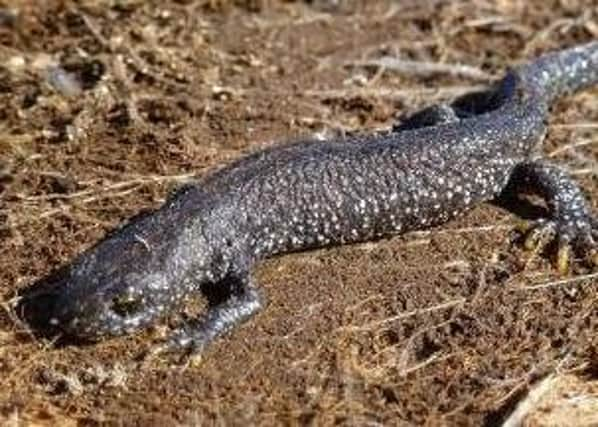Newt population decline set to reverse under new scheme creating ponds


Natural England partnered with EnTrade earlier this year as part of its District Level Licensing Scheme to deliver auctions where landowners can bid to create new habitat for the newts away from land outlined for development.
The auctions began in March 2020 and have already secured more than 125 ponds in Cheshire, Leicestershire, Rutland and Nottinghamshire, with Cambridgeshire and Essex being the next targeted areas for landowners to take part.
Advertisement
Hide AdAdvertisement
Hide AdOverall, the Natural England scheme has delivered more than 700 new ponds across England since 2019.
Great crested newt populations in the UK have declined rapidly over the last century, despite being protected under UK and EU law, largely due to loss of habitat caused by building development and pond neglect.
The new scheme is designed to better conserve great crested newt populations, while also helping developers to complete their projects quicker and more cost-effectively and farmers and landowners can benefit from sustainable new revenue streams.
“The District Level Licensing Scheme provides win-win solutions for all who are involved,” says James Peacock, product manager at EnTrade.
Advertisement
Hide AdAdvertisement
Hide Ad“Creating clusters of ponds in this way has been shown to maximise the chance of colonisation by great crested newts and improve population resilience.”
Craig Thomas, habitat delivery strategist at Natural England, said: “We market the auctions to landowners in areas that are particularly important for great crested newts. Habitat is targeted within Strategic Opportunity Areas – where evidence tells us that there is a good likelihood of the ponds being colonised by newts.
“We use the EnTrade platform as an engagement tool, allowing us and our local Habitat Delivery Bodies to build long-term relationships with landowners to positively manage and monitor the new ponds over the next 25 years to maintain healthy newt populations.”
Comment Guidelines
National World encourages reader discussion on our stories. User feedback, insights and back-and-forth exchanges add a rich layer of context to reporting. Please review our Community Guidelines before commenting.